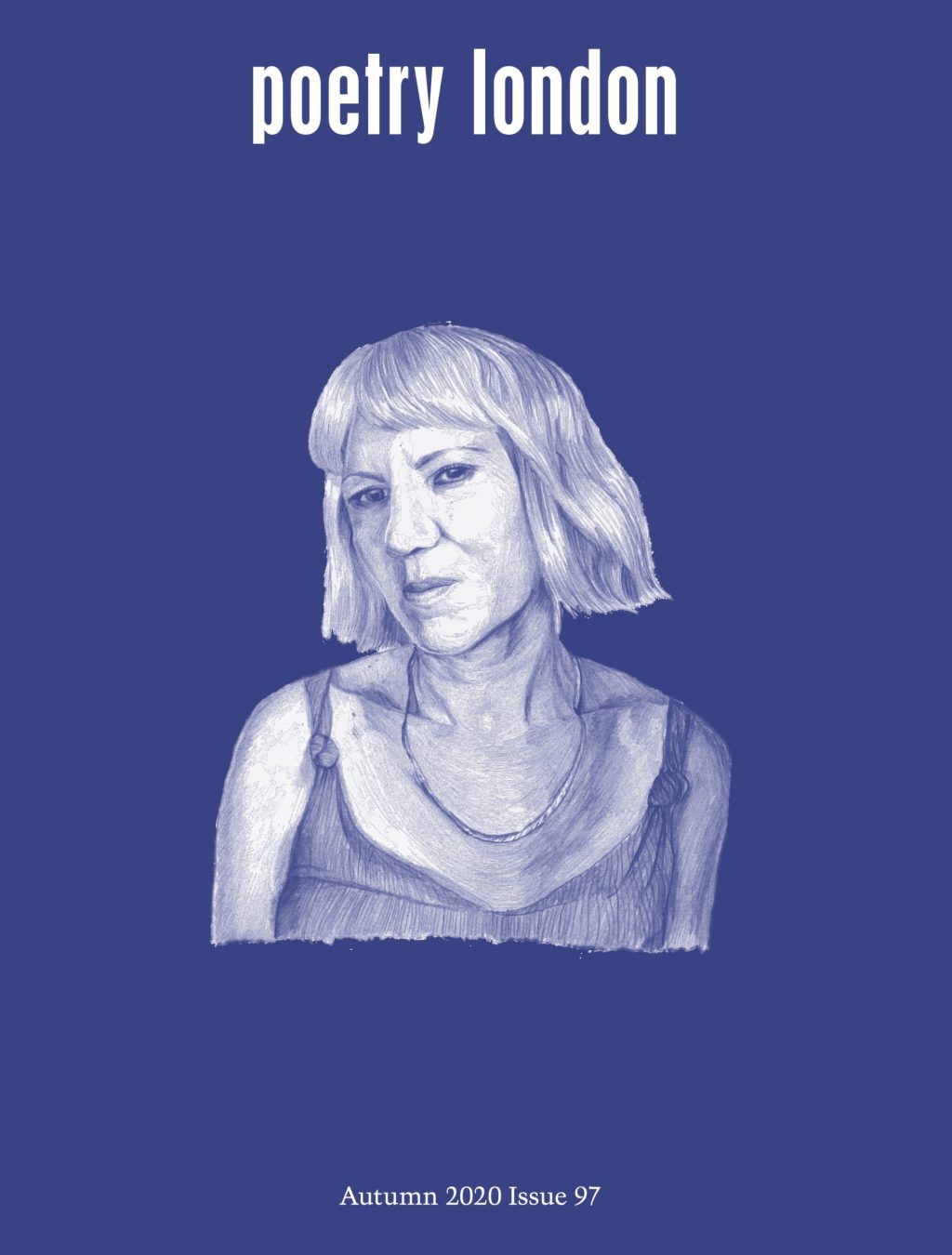Poetry London: Firstly, many congratulations on winning 2nd prize in this year’s competition! Ilya was extremely impressed by the quality of the entries, so this is no small achievement. Can you tell us a little about when and why you wrote this poem, and why you felt it was the right one to submit to the prize?
Pat Winslow: I wrote the poem in early May. Lockdown has proved a particularly creative period for me. I rarely have the luxury of writing time. I belong to several poetry groups and we’ve been meeting online since the end of March. One group has a monthly theme. On this occasion, it was ‘Trees’. I’ve always been fascinated by patterns and similarities. The human vascular system and tree branches are an obvious example, but we also map our world in arterial roads, side streets and alleyways. I was focusing on a particular moment in my life. I was 17 and thinking about leaving home, travelling. I think at that age you’re quite often aware of a huge interiority, and then there’s this sense of a big world out there waiting for you. To be honest, it was good to get away from all things Covid. Interesting there’s a wall in this poem, though!
Was it the right poem to enter? I never know. Prose poetry has always felt a bit of a risk, but I think that’s no longer the case. I think it felt weird enough, if I’m honest. My otherwordly poems seem to do well sometimes.
PL: It’s interesting to hear your reflections on the productivity, and strong sense of community, you’ve felt during lockdown. Do you feel that this strange time has fostered an even stronger sense of community among poets?
PW: I think the pandemic has fostered a stronger sense of community for everyone, so I don’t see why this would be any different for poets. It feels as though we’ve become closer in many ways. We’re not just attending on-line workshops and readings, we’re emailing and texting more often. I spend longer on Facebook than I used to. It would have been an irritant previously – just let me get on with my work – but now there’s a more personal resonance. There’s a network of emotional support which is more apparent. And we’re linked internationally, too, which is great. My local Stanza group has a connection with Bonn poets and they regularly attend both workshops and readings. This wouldn’t have been possible before. Political leaders may be failing to co-operate effectively, whereas poets seem to thrive on communication. Shelley had something to say about this way back in 1840.
PL: Is prose poetry a form you often write in, or was this poem a new venture for you?
I’ve been writing prose poetry for quite a while now. I felt, initially, at least, that there was a great deal of hostility towards the form in this country, so I tended to try and push my work into a more acceptable ‘poetic shape’. You can’t drag a poem out of its body and put it into another one any more than you can take a human out of their body and put them in someone else’s. They’ll kick and scream their way back. Just before lockdown I signed up to Giles Goodland’s prose poetry course with the University of Oxford. I’d been reading a great deal around this time. Many poets are working in a wide variety of forms now and this has felt like throwing open all the doors and windows so we can breathe more easily. Ilya Kaminsky’s Deaf Republic is a brilliant example of how expansive the use of form can be. I love the way he incorporates sign language and elements of drama into his work. Claudia Rankine is another writer I admire. Citizen is quite brilliant.
PL: What does it mean to you to have won 2nd prize in this competition, and do you think it will change any of your writing plans and ambitions in the year ahead?
I’m delighted to have come 2nd and to be placed alongside such excellent poets. Many thanks to Ilya for choosing my poem. Judging is an unenviable task, I think. The prize money will allow me to buy more writing time, and for this I am very grateful.
Read Pat’s prize-winning poem, ‘1971, Northaw’, here.


